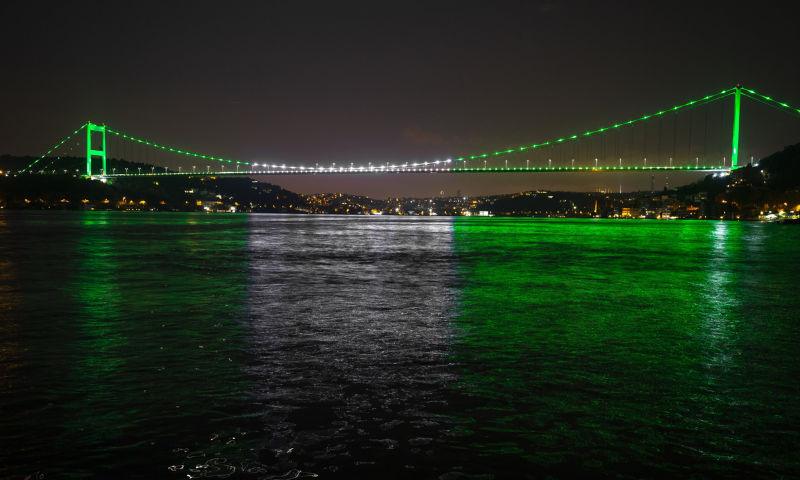77 years on, Pakistan’s journey as an independent state continues. It is a long story of many ups and downs. Introspection is the best way to draw lessons for improvement and changing the wrong courses. Besides this, a dire need is felt to remember the ideology pursued for an independent state by our founding fathers.
Certain questions may help in digging out the facts pertaining to the socio-political and socio-religious environment in the pre-partition subcontinent. In this era of a speedy flow of information, most digital platform users do not find enough time to verify the authenticity of content available in abundance. A handful of artificial analysts and self-style intellectuals are exploiting the vast gaps in cyber domains by raising controversies on numerous sensitive issues.
Topics related to religious beliefs, political ideologies and philosophical concepts are being intensively used on digital platforms. Unfortunately, most of the social media debates are specifically designed to fuel controversies in the garb of intellectual dissent. Newly born podcasters, YouTubers and v-loggers try to grab millions of views in a short span of time without doing much hard work. This is possible only with the fabrication of controversies. The ideology of Pakistan and the two nation theory are those favourite topics which provide enough room to trigger controversies.
Both these topics are too sensitive to play controversial games on digital platforms. The creation of Pakistan was not an ideological fallacy or an uncharted stroke of history. Satirical questions and criticism of the two nation theory are mostly laced with venom towards the Islamic outlook of Pakistan. Such objections usually come from particular quarters who usually portray themselves as flag-bearers of Western secular democracy.
The irony is that hollow criticism of the two nation theory lacks historical context to the pre-partition socio-political environment of the subcontinent. Critics of the two nation theory often avoid analysing the Allahabad address of Allama Iqbal which revolves around the political solution to the problems being confronted by the Muslims of the subcontinent. Flagbearers of secularism, intentionally or unintentionally, miss this important aspect that Jinnah and Iqbal both had lost trust in Congress’ version of secular democracy. Precise accuracy of this political diagnosis can be seen in today’s India where RSS ideology is ruling the country in the form of Modi lead BJP.
Mohammed Ali Jinnah was once an advocate of Hindu-Muslim unity and therefore started his political journey from the platform of the Indian National Congress. Later on, Mohammed Ali Jinnah disassociated from Congress after closely observing the anti-Muslim designs wrapped in the secular outlook. Poet of the East Allama Iqbal was also of the opinion that the survival of the Muslims of the subcontinent depends on the establishment of an autonomous state comprising the Muslim majority areas.
The plight of the minority especially the Muslims in India is the biggest authentication to the political wisdom of Iqbal and Jinnah. Surprisingly, critics of the two nation theory and ideology of Pakistan never comment upon the Islamophobia perpetuated in India by none other than the ruling party BJP. Systematic marginalization of the Indian Muslims in the form of mosque demolitions, forced conversions, mob lynching, demographic assault as well as genocidal atrocities in Indian Illegally occupied Jammu and Kashmir have endorsed the creation of Pakistan.
This is unfair to blame the Founding Fathers for the obvious failures of present-day rulers. Most of the present-day troubles confronted by Pakistan are self-created and curable subject to realistic introspection aiming at accountability vis-à-vis course correction. Our founding fathers deserve appreciation for securing an independent state which is now the homeland for our generations to come. Those who perpetuate despair just for the sake of some views or likes should spare some time to unearth the plight of the Indian Muslims.

BJP’s past ten years of rule in India is the most undeniable certification of the two nation theory. The creation of Pakistan is an undeniable historical reality in the subcontinent. Those who try to undermine the creation of Pakistan on any irrelevant pretext are doing a disservice to the spirit of independence. Present-day economic hardships and governance failures are the outcome of our collective deviations from the path shown by the founding fathers. Pakistan managed to survive against the wishes of hostile India which always had designs to undo the 1947 partition.
The enormous potential of Pakistan is still untapped. The long coastal belt, fertile lands, snow-covered peaks, mineral-rich grounds, population having 66% youth ratio and nuclear capability with highly professional armed forces provide an ideal winning combination. Misplaced comparisons with ongoing unrest in Bangladesh are also part of destructive efforts to dispel the spirit of independence.
Arshad Nadeem’s historic victory in the Olympics is the best answer to the merchants of chaos. Arshad Nadeem’s victory on the one hand has reminded us of those days when Pakistan was the world champion of cricket, hockey, squash and snooker. On the other hand, this victory has given a strong message that Pakistan is destined to rise and shine. It all depends upon our collective reconnection with the spirit of independence and realistic introspection.























